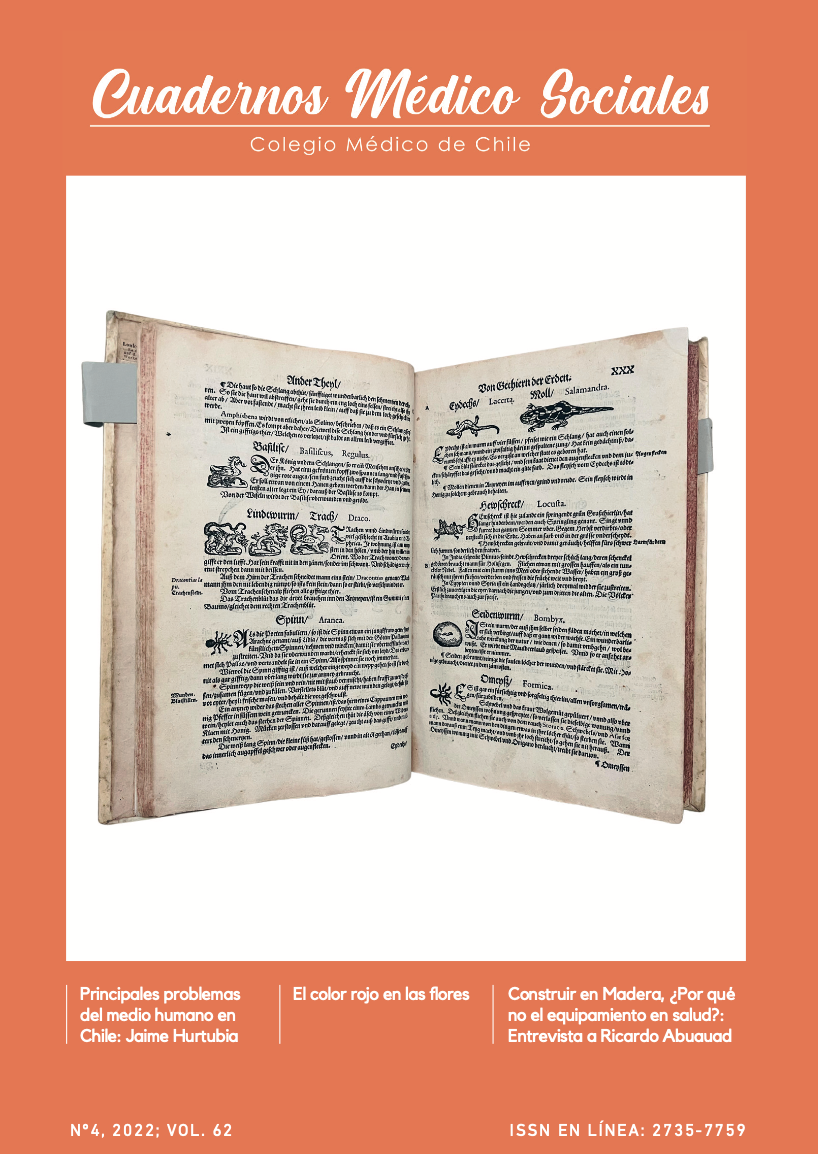The lie in politics and scientific evidence. Digressions for one (another) simulation in public health
DOI:
https://doi.org/10.56116/cms.v62.n4.2022.521Keywords:
Lie, Politics, Scientific evidence, Public Health, SimulationAbstract
This text proposes a tour of the lie in politics and part of the recent scientific evidence, associating some narrative digressions that allow a test of other ways of thinking in public health. Under the idea of simula- tion, it is proposed to problematize some assumptions of the forms of organization of our health institutions, registered in a known political-economic regime, which can restrict and nullify capacities for action in public health, risking increasing their distance from the territories. and its health truths. As a provisional closure, at the end guiding questions are offered for new discussions in the field of health.
Downloads
References
Almeida-Filho, N. (2019). El sujeto de los riesgos en un mundo transhumano y pos-clínico: reflexiones a partir de Todos los nombres de Saramago y de Matrix de las hermanas Wachowski. Salud colectiva, 15, e2595. https://dx.doi.org/10.18294/ sc.2019.2595
Baudrillard, J. (2002). La ilusión vital. Madrid: silgo XXI Editores
Bettetini, Maria (2002). Breve historia de la mentira. De Ulises a Pinocho. Madrid: Cátedra.
Bufacchi, V. (2021). Truth, lies and tweets: A consensus theory of post-truth. Philosophy & Social Criticism, 47(3), 347-361. https:// doi.org/10.1177/0191453719896382
Capilla, P. (2021). Post-Truth as a mutation of epistemology in journalism. Media and Communication, 9(1), 313-322. https:// doi.org/10.17645/mac.v9i1.3529
Carpintero, E. (2017). El concep- to de “posverdad”: una nueva mentira. Revista Topia. Disponible en: https://www.topia.com.ar/articulos/ concepto-posverdad-una-nueva-mentira
Choshen-Hillel, S., Shaw, A., & Caruso, E. M. (2020). Lying to appear honest. Journal of Experimental Psychology: General, 149(9), 1719. https://psycnet.apa.org/ doi/10.1037/xge0000737
Collado, F. (21 de mayo de 2021). ¿Por qué no nos dicen la verdad? Un recorrido histórico por la mentira en la vida política. The Conversation. Disponible en: https:// theconversation.com/por-que-no-nos-di- cen-la-verdad-un-recorrido-historico-por- la-mentira-en-la-vida-politica-160464
Cristi, R. (2021). La tiranía del mercado. El auge del neoliberalismo en Chile. Santiago. LOM Ediciones.
Derrida, J. (1995). Historia de la menti- ra: Prolegómenos. Conferencia dictada en Buenos Aires en 1995. Organizada por la Facultad de Filosofía y Letras y por la Universidad de Buenos Aires. Edición digital de Gerardo Fittipaldi para Derrida en castellano. Disponible en: https://redaprenderycambiar.com.ar/derrida/textos/mentira.htm
Ding, X. P., Wu, S. J., Liu, J., Fu, G., & Lee, K. (2017). Functional neural networks of honesty and dishonesty in children: eviden- ce from graph theory analysis. Scientific re- ports, 7(1), 1-10. https://doi.org/10.1038/ s41598-017-11754-4
Foucault, M. (2015). Historia política de la verdad. Una genealogia de la moral: breviarios de los cursos del Collège de France; Edición y traducción de J. Alvarez Yagüez. Madrid: Ed. Biblioteca Nueva.
Garrett, N., Lazzaro, S. C., Ariely, D., & Sharot, T. (2016). The brain adapts to di- shonesty. Nature neuroscience, 19(12), 1727-1732. doi: 10.1038/nn.4426
Guzikevits, M., & Choshen-Hillel, S. (2022). The optics of lying: How pursuing an ho- nest social image shapes dishonest behavior. Current Opinion in Psychology. https:// doi.org/10.1016/j.copsyc.2022.101384
Horton, R. (2022). Offline: There is no right to lie. The Lancet, 399(10327), 778. https://doi.org/10.1016/S0140-6736(22)00370-1
Köbis, N. C., Verschuere, B., Bereby-Meyer, Y., Rand, D., & Shalvi, S. (2019). Intuitive honesty versus dishonesty: Meta-analytic evidence. Perspectives on Psychological Science, 14(5), 778-796. https://doi.org/10.1177/17456916198517
Leib, M., Köbis, N., Soraperra, I., Weisel, O., & Shalvi, S. (2021). Collaborative disho- nesty: A meta-analytic review. Psychological Bulletin, 147(12), 1241. https://psycnet. apa.org/doi/10.1037/bul0000349
Liu, X., Zhao, C., Zhang, X., Compton, B. J., Sai, L., & Heyman, G. D. (2022). Messaging about descriptive and injunctive norms can promote honesty in young children. Child Development. doi: 10.1111/cdev.13830. Epub ahead of print. PMID: 35904139.
Lorenzini, D. (2010). Para acabar con la verdad-demostración: Bachelar, Canguilhem, Foucault y la historia de los” regímenes de verdad”. Laguna: Revista de Filosofía, (26), 9-34.
Mañón, J. (2020). Sobre el derecho a mentir. Verdad y posverdad en la comuni- cación y la construcción de ciudadanía. Problema anuario de filosofía y teoría del derecho, (14), 285-313. Epub 05 de marzo de 2021. https://doi.org/10.22201/ iij.24487937e.2020.14.14912
Martín, L. (2019), “El concepto de mentira política organizada en Hannah Arendt”: Foro Interno. Anuario de Teoría Política, vol. 19, pp. 5-27. https://doi.org/10.5209/ foin.65815
Nietzsche, F. (2018). Verdad y mentira (José Jara, Trad.). Editorial UV de la Universidad de Valparaiso (Obra original publicada en 1873)
Ossandón, J. (2020). ¿Cómo terminamos gobernados por mercados? Los mercados como políticas públicas y el experimen- to de la salud en Chile. CIPER. https:// ciperchile.cl/2020/07/11/como-termina- mos-gobernados-por-mercados-los-mer- cados-como-politicas-publicas-y-el-experi- mento-de-la-salud-en-chile/
Powell, M. (2017). This Is My (Post) Truth, Tell Me Yours: Comment on” The Rise of Post-truth Populism in Pluralist Liberal Democracies: Challenges for Health Policy”. International Journal of Health Policy and Management, 6(12), 723.
Sachs, J. D., Karim, S. S. A., Aknin, L., Allen, J., Brosbøl, K., Colombo, F. et al (2022). The Lancet Commission on lessons for the future from the COVID-19 pandemic. The Lancet, 400(10359), 1224-1280. https://doi.org/10.1016/S0140-6736(22)01585-9
Sadin, É. (2020). La inteligencia artificial o el desafío del siglo. Anatomía de un antihumanismo radical. Buenos Aires: Caja Negra Editora.
Sai, L., Shang, S., Zhao, C., Liu, X., Jiang, Y., Compton, B. J., ... & Heyman, G. D. (2022). The developmental origins of a default moral response: A shift from honesty to dishonesty. Child Development. doi: 10.1111/cdev.13830. Epub ahead of print. PMID: 35904139.
Santos, R. M., Zanette, S., Kwok, S. M., Heyman, G. D., & Lee, K. (2017). Exposure to parenting by lying in childhood: Associations with negative outcomes in adulthood. Frontiers in Psychology, 8, 1240. https://doi.org/10.3389/fpsyg.2017.01240
Soler, A. & Roger, C (2020). Niños sin eti- quetas. Barcelona: Ed. Paidos.
Speer, S. P., Smidts, A., & Boksem, M. A. (2021). Cognitive control promotes either honesty or dishonesty, depending on one’s moral default. Journal of Neuroscience, 41(42), 8815-8825. DOI: https://doi.org/10.1523/JNEUROSCI.0666-21.2021
Talwar, V., & Crossman, A. (2022). Liar, liar... sometimes: Understanding Social-Environmental Influences on the Development of Lying. Current Opinion in Psychology, 101374. https://doi.org/10.1016/j.copsyc.2022.101374
Downloads
Published
How to Cite
Issue
Section
License
Copyright (c) 2023 Sebastián Villarroel González

This work is licensed under a Creative Commons Attribution-NonCommercial-ShareAlike 4.0 International License.


